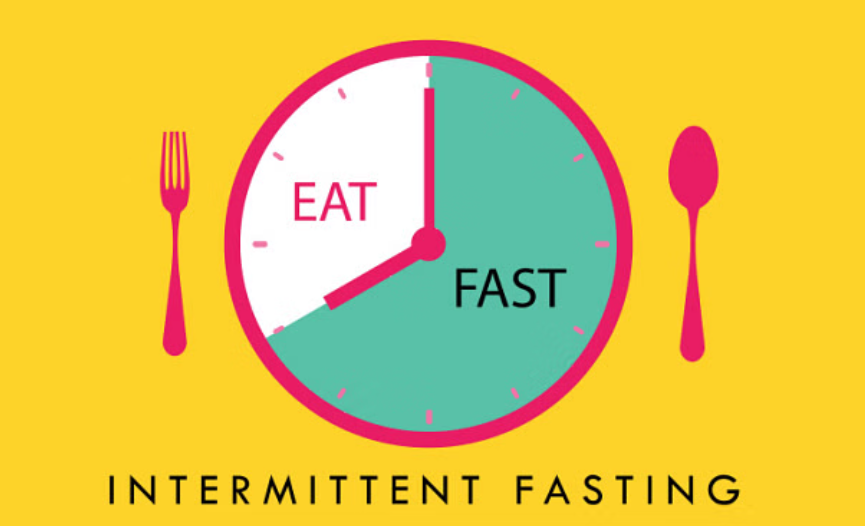
Intermittent Fasting for Superior Blood Sugar and Cholesterol Management
Intermittent Fasting Revolutionizes Nutrition for Disease Prevention
In a year dominated by groundbreaking studies and celebrity weight loss success stories, nutrition and diet have emerged as pivotal elements in managing and preventing chronic diseases. Whether it’s mindful eating, intermittent fasting, portion control, time and calorie restriction, or plant-based diets, each approach has shown tangible effects in reducing weight, blood sugar, and body fat. Interestingly, diets now stand alongside exercise and sleep as equal drivers of lifestyle correction.
However, the challenge with fad diets lies in their lack of universality, making them unsustainable. The most effective diet is one that can be consistently adhered to, encompassing all food groups without inducing cravings through denial.

Nutritionists and dieticians have singled out intermittent fasting, or time-restricted eating, as a transformative formula particularly suitable for Indians prone to diabetes, hypertension, cholesterol, and heart disease. There are various ways to practice int-fasting, such as eating within an eight-hour window and fasting for 16 hours, compressing meals into a 12-hour period and fasting for the remaining 12 hours, or having regular meals on weekdays while restricting calorie intake on weekends.
Ritika Samaddar, Regional Head of the Department of Clinical Nutrition and Dietetics at Max Healthcare, emphasizes the importance of adhering to a schedule, aligning with the circadian clock to enhance insulin sensitivity—an acclaimed benefit of int-fasting. Samaddar notes that people often adopt int-fasting at their convenience, starting and ending late. However, she emphasizes that giving the gut rest at night is crucial, as glucose, a potent inflammatory agent, can erode the inner lining of arteries and veins in the heart. A fasting cycle provides 16 hours for the body to repair these cellular walls, preventing the formation of plaques and damage to the heart.
Who should engage in intermittent fasting?
Samaddar emphasizes that intermittent fasting is not suitable for everyone. Individuals under the age of 25 and pregnant women, both requiring higher calorie intake, are advised against it. Additionally, those relying on high-dose medication and insulin for diabetes management should avoid int-fasting. While improved insulin sensitivity can help control blood glucose levels and even reverse Type-2 diabetes in some cases, this effect is most pronounced in the initial years after diagnosis.
Dr. Priyanka Rohatgi, Chief Nutritionist at Apollo Hospitals, suggests incorporating resistance training alongside int-fasting. She cautions that without exercise during fasting periods, there’s a risk of losing muscle mass. For individuals lacking a consistent sleep schedule, consuming large meals, or not accustomed to regular fasting or exercise, Dr. Rohatgi advises addressing these habits before diving into int-fasting.
how does intermittent fasting bring about these benefits?
Research over the years indicates that intermittent fasting goes beyond merely burning fat during fasting periods. It triggers crucial cellular functions that can enhance metabolism, improve insulin sensitivity, reduce blood glucose levels, alleviate inflammation, and promote gut health. A recent study highlights that intermittent fasting enhances autophagy—a process in which the body eliminates damaged cell components—contributing to conditions like cancer prevention. Furthermore, studies on animals have shown that calorie restriction reduces the accumulation of beta-amyloid protein, a key marker associated with Alzheimer’s disease.
In the realm of health and wellness, int-fasting stands out as more than just a weight management strategy. Its impact extends to fundamental cellular processes that play a role in various aspects of overall well-being.
One notable aspect is the improvement in metabolism, which is not solely about shedding excess pounds during fasting periods. Int- fasting has been linked to enhanced metabolic functions, potentially contributing to a more efficient energy utilization system within the body.
The positive influence on insulin sensitivity is another key factor. While the effects may be most pronounced in the early years following a Type-2 diabetes diagnosis, intermittent fasting has shown promise in helping regulate blood glucose levels. This could be a valuable tool in the arsenal against diabetes and related metabolic disorders.
Reducing inflammation is a crucial benefit associated with intermittent fasting. Chronic inflammation is implicated in a range of health issues, from cardiovascular diseases to autoimmune conditions. By incorporating intermittent fasting, individuals may experience a reduction in inflammatory markers, promoting a healthier overall state.
Gut health, often overlooked but integral to overall well-being, is positively influenced by intermittent fasting. The periods of fasting allow the gut to rest, promoting a healthier microbial balance. This, in turn, may contribute to improved digestion and absorption of nutrients.
One intriguing finding is the connection between intermittent fasting and autophagy. The cellular process of autophagy, where the body removes damaged or dysfunctional cell components, has been associated with various health benefits. Notably, it has implications for conditions like cancer prevention, showcasing the far-reaching impact of intermittent fasting beyond traditional health metrics.
Moreover, research in animals has shown that calorie restriction, akin to intermittent fasting, can lead to a reduction in the accumulation of beta-amyloid protein. This protein is a hallmark of Alzheimer’s disease, suggesting that intermittent fasting might have potential implications for neurodegenerative conditions.
As the scientific exploration of intermittent fasting continues, it becomes increasingly clear that its benefits extend far beyond weight management, encompassing a holistic improvement in various aspects of health and longevity. However, it’s crucial to approach intermittent fasting with consideration for individual health conditions and lifestyle factors, ensuring a balanced and sustainable approach to reap its full rewards.
For the latest updates-click here.

